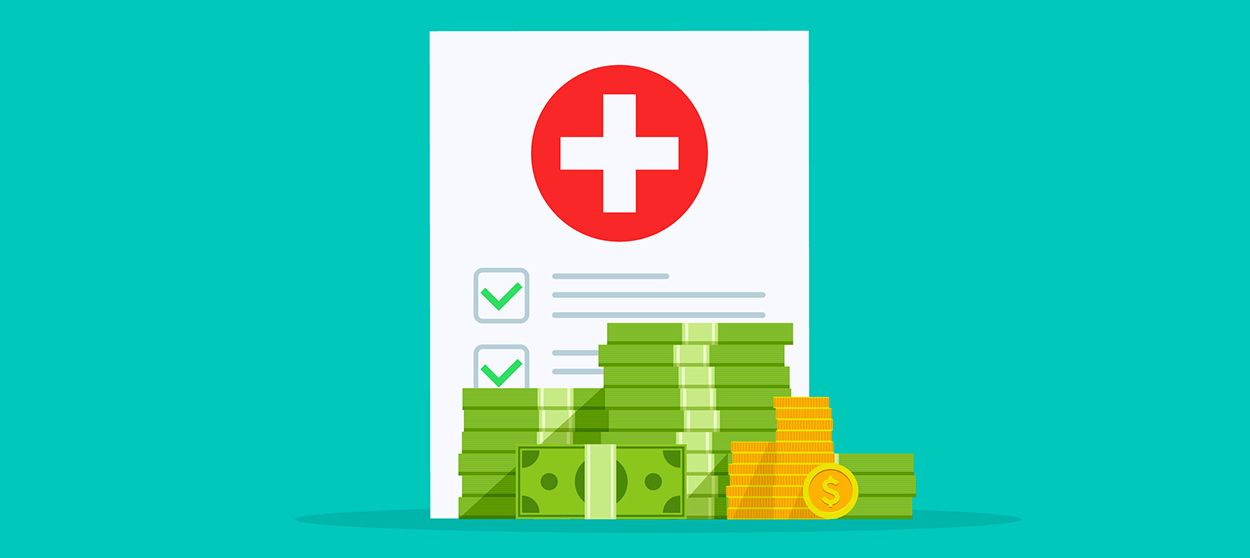Ending surprise hospital bills
And more of the week's best financial advice

A free daily email with the biggest news stories of the day – and the best features from TheWeek.com
You are now subscribed
Your newsletter sign-up was successful
Here are three of the week's top pieces of financial advice, gathered from around the web:
Ending surprise hospital bills
A bipartisan effort in Congress is aimed at protecting Americans who get "surprise" medical bills, said Paige Winfield Cunningham at The Washington Post. The legislation is the culmination of two efforts last fall to "ban insurers from charging patients higher costs" for seeing out-of-network providers for emergency care. It would also establish a billing standard for insurers and doctors.
The Week
Escape your echo chamber. Get the facts behind the news, plus analysis from multiple perspectives.

Sign up for The Week's Free Newsletters
From our morning news briefing to a weekly Good News Newsletter, get the best of The Week delivered directly to your inbox.
From our morning news briefing to a weekly Good News Newsletter, get the best of The Week delivered directly to your inbox.
While the bill won't protect patients who "electively" choose to visit an out-of-network hospital or clinic, it "reflects a growing recognition" regarding unexpected and sizable charges that often seem out of the patient's control. A Yale study found that even in emergency-department visits at in-network facilities, "22 percent involved out-of-network doctors." Recently, a man in Texas was billed $108,951 "for a four-day stay at an out-of-network hospital following a heart attack."
Second-home tax apps
Apps can help taxpayers with second homes prove where they spend most of their time, said Daniel Akst at The Wall Street Journal. One iPhone app called Monaeo tracks your whereabouts using GPS and Wi-Fi. This is helpful for a person with homes in multiple states where taxes vary. Nevada, for instance, has no income tax, while neighboring California has the highest marginal state tax rate at 13.3 percent. TaxDay — at $10 a month, less expensive than Monaeo — knows the "maximum number of days a person can spend" in one state before being taxed as a resident and will alert users "when they are running out of days allowed." For an extra fee, Monaeo will also gather "digital evidence of location for a taxpayer undergoing an audit."
Tax-free health-care savings
A free daily email with the biggest news stories of the day – and the best features from TheWeek.com
One way to reduce your tax bill is by contributing to a health savings account, said Ann Carrns at The New York Times. If you have a health plan with a deductible of at least $1,350 for an individual or $2,700 for a family, you can deposit up to $3,450 (or $6,900 for a family) in the HSA. You can still put money in a 2018 HSA until tax day in April. Deposits are tax-deductible and, unlike with an IRA, you also don't pay taxes on withdrawals. The accounts "are particularly useful for saving for health needs in retirement," because they don't have any deadline for withdrawing funds before they get taxed. They are often confused with flexible spending accounts, or FSAs, which have lower contribution limits and restrict carryover from year to year.
-
 The ‘ravenous’ demand for Cornish minerals
The ‘ravenous’ demand for Cornish mineralsUnder the Radar Growing need for critical minerals to power tech has intensified ‘appetite’ for lithium, which could be a ‘huge boon’ for local economy
-
 Why are election experts taking Trump’s midterm threats seriously?
Why are election experts taking Trump’s midterm threats seriously?IN THE SPOTLIGHT As the president muses about polling place deployments and a centralized electoral system aimed at one-party control, lawmakers are taking this administration at its word
-
 ‘Restaurateurs have become millionaires’
‘Restaurateurs have become millionaires’Instant Opinion Opinion, comment and editorials of the day